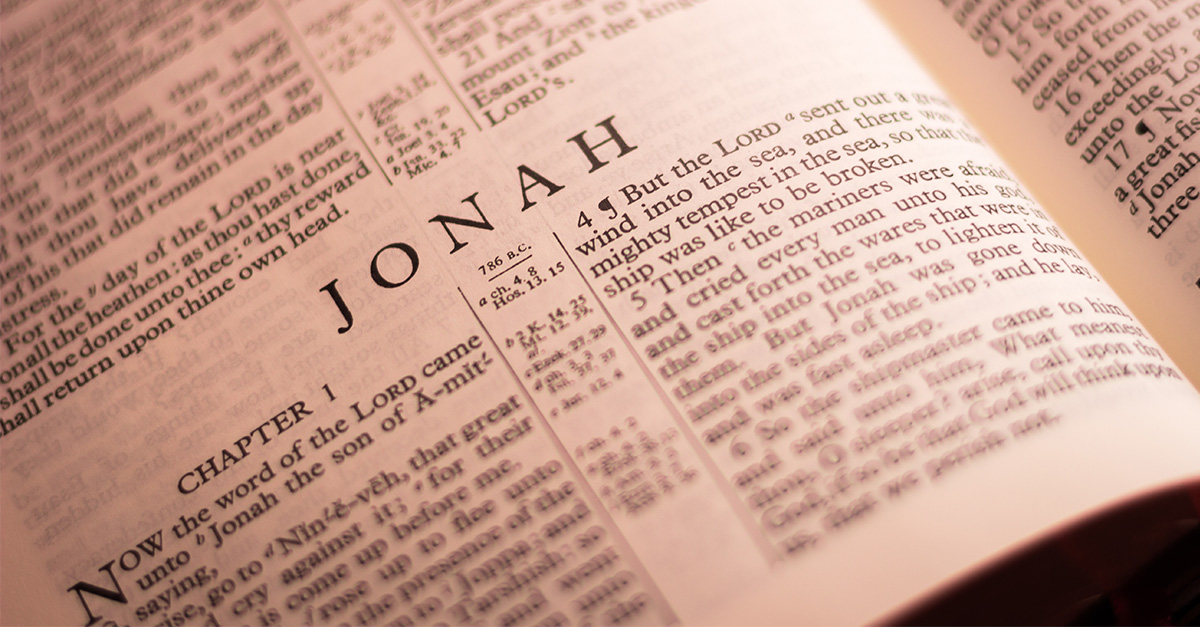


Get a free copy of Parental Rights & Education when you subscribe to our newsletter!

“The King of Nineveh gave first care to ‘divine things,’ to repent and humble himself, and his people, before God. By doing so, he saved himself and his people. Let’s pray that God gives us such leaders today, even in America, who are willing to do the same.”
–WILLIAM WOLFE
Just about everyone knows the story of Jonah and the big fish. Children of all ages love to hear how the reluctant prophet to Nineveh was tossed over the side of a ship on the high seas in the middle of a raging storm — only to be swallowed whole by a “huge fish” and spend three days and three nights in the “belly of a whale.” When Jonah was finally — and, no doubt, slimly — spit back out, he submitted to God’s call and obeyed the command to “Go to the great city of Nineveh and preach against it, because its wickedness has come up before me” (Jonah 1:2, NIV).
But what happens next has profound implications for Christian political theology. Political theology, in short, is a term used to denote the ways in which theological concepts or ways of thinking relate to politics. Just like every Christian is a theologian, so too every Christian is a political theologian; the only question then is are we biblical political theologians — or do we formulate our political beliefs apart from God’s special and natural revelation?
While the Book of Jonah is indeed a profound exploration of God’s mercy and the transformative power of repentance, it also presents a compelling case for the role of faith and God-honoring leadership in government and politics.
After Jonah is regurgitated from the belly of the fish in a demonstration of God’s resurrection power (three days spent in the tomb of the ocean, brought back to life and dry land), Jonah finally heads to Nineveh. In Jonah 3:3-4, we read that:
“Jonah obeyed the word of the Lord and went to Nineveh. Now Nineveh was a very large city; it took three days to go through it. Jonah began by going a day’s journey into the city, proclaiming, ‘Forty more days and Nineveh will be overthrown.’”
How would the people of Nineveh, this non-Israelite people, respond? Even more importantly, how would the King of Nineveh respond? Jonah 3:6-9 tells us how: with humility and repentance.
“When Jonah’s warning reached the king of Nineveh, he rose from his throne, took off his royal robes, covered himself with sackcloth and sat down in the dust. This is the proclamation he issued in Nineveh:
‘By the decree of the king and his nobles:
Do not let people or animals, herds or flocks, taste anything; do not let them eat or drink. But let people and animals be covered with sackcloth. Let everyone call urgently on God. Let them give up their evil ways and their violence. Who knows? God may yet relent and with compassion turn from his fierce anger so that we will not perish.’”
The king of Nineveh, upon hearing Jonah’s message, leads his city in repentance. He orders everyone to fast and wear sackcloth as signs of their remorse. This act of humility and repentance from a non-Israelite king is significant. It demonstrates that honoring God is not confined to one nation or people but is a universal call.
Again, this is a nation that had not been given the Ten Commandments. They didn’t have the Law of Moses. And yet, when the King of Nineveh was confronted by God’s prophet over the sins of his citizens, he didn’t hesitate to lead — to command — his people to repent.
Did the King of Nineveh “violate the religious freedom” of his citizens when he commanded them to repent in sackcloth and ashes to avoid God’s judgment? That’s the wrong question. The right question for our Christian political theology is this: Did he honor God in his leadership? And the answer to that is, absolutely! The King of Nineveh obeyed the commands of Psalm 2:10-12, KJV:
“Be wise now therefore, O ye kings: be instructed, ye judges of the earth. Serve the Lord with fear, and rejoice with trembling. Kiss the Son, lest he be angry, and ye perish from the way, when his wrath is kindled but a little. Blessed are all they that put their trust in him.”
That’s what we should want from our rulers today — from our state representatives to Congressmen and Senators to the President of the United States: Rulers who “Kiss the Son” and acknowledge that the Heavenly Sovereign is the one true sovereign over all the kings of the earth.
The King of Nineveh commanded that his citizens join him in honoring God as the “King of Kings.” This demonstrates the humility that all of those who serve in the government should have. He recognized his city’s wrongdoing and led them in repentance. This humility before God is a powerful trait that Americans should again demand from all of our political leaders.
Thus, we see that this brief, four-chapter minor prophet is chock full of serious implications for our political theology today.
In our postmodern, secular society it appears that those who reject the need for a Christian moral foundation for society would be angry and “curse the gourd” (like Jonah) if the rulers of our land repented (like the King of Nineveh) and sought to bring America to repentance before God and then lead and rule America as a Christian society.
As the great Baptist theologian John Gill explained in his systematic theology, the kings of men (or elected representatives) “are to discountenance and suppress impiety and irreligion; and to countenance and encourage religion and virtue; even Aristotle observes in his book of Politics, that “the first care of government should be the care of divine things, or what relate to religion. Civil magistrates are appointed for the punishment of evildoers, and for the praise of them that do well; they are to discourage vice, and vicious persons.”
This is exactly what the King of Nineveh did: He gave first care to “divine things,” to repent and humble himself, and his people, before God.
By doing so, he saved himself and his people. Let’s pray that God gives us such leaders today, even in America, who are willing to do the same. And when the King repents, we should rejoice.
The Church must be involved in public discourse and influence. That’s why we write — so our readers can be equipped to understand and pursue righteous change in the world. For more timely, informative, and faith-based content, subscribe to the Standing for Freedom Center newsletter.
